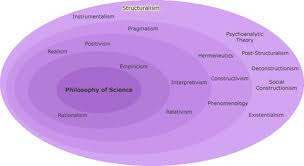Sunday, May 20, 2012
Kant’s Categories—The Consequences
Structuralism And Kant's Philosophy Continued
The claim that one will’s, via Kant’s categories, knowledge of the universe
is more than an arbitrary assessment by Fichte on Kant's presupposed ego.
The science of Einstein, Bohr, Schrodinger and Heisenberg has
demonstrated the error in Kant's constitutive and hence necessary relationship
between the categories of understanding and reality. Thus, science has taught us
that mental categories, if indeed there are such things, are only interpretive
for the measurable observable events that we identify with reality. Within the
context of the scientific method, these events are hypothetically postulated and
aposteriorily (to use Kant's terminology) verified. Consequently, it is not the
facts that imply the theory; rather, it is the theory that implies the facts.
The breakdown of the necessary relationship between Kant's categories and
sensed experience does not invalidate Kant's distinction of sensed space and
time and mathematical space and time. Kant's philosophy, not withstanding its
assumption of necessity, is still a major force in the world today.1
It is unfortunate, however, that Fichte's identification of the will with Kant's
practical ego helped to supplement the deterministic portions of Hegel's
idealism and in no small way contributed to the totalitarian ideologies of Nazi
Germany and the U.S.S.R. In a nutshell, an ego free from the constraints of
reason, motivated purely through the expression of the will, identifies the “is
of society” with the “ought for society.” This, in turn, became the determinism by
which Hegel's "world spirit" and Marx's "dialectical materialism" swallowed up
the individual. What began in Kant as an attempt to restore and secure the
notion of a person's free will, ended up contributing to in the brutal
consequences of fascist and communist dictatorships. Here we once again see the
irony of the political animal called man. But, moving in another direction,
that is, remaining under the umbrella of Kant's transcendental ego, the more
modern movement of structuralism has come to the fore.
[1. In his ontological structuralism, W.V. Quine, a person of major significance
in the defining aspects of today's philosophy of science, establishes a Kantian
position when he takes structure (mathematical form) and events of confirmation
to be the ultimate ground for knowledge. Quine informs us that the structural
aspect (the categorical aspect) of this knowledge as it relates to verification
is, in addition to being Kantian, is also uncertain. He says, "Science ventures
its tentative answers in man-made concepts, perforce, couched in man-made
language, but we can ask no better. The very notion of object, or of one and
many, is indeed as parochially human as the parts of speech; to ask what reality
is really like, however, apart from human categories, is self-stultifying.
.....We saw that reference (structure) could be wildly interpreted without
violence to evidence. We see now that that is just part of a wider picture.
Presumably yet more extravagant departures, resistant even to
sentence-by-sentence interpretation into our own science, could conform equally
well to all possible observations." W.V. Quine, The Journal Of Philosophy,
Volume LXXXIX, NO. 1, January l992]
Subscribe to:
Post Comments (Atom)






No comments:
Post a Comment